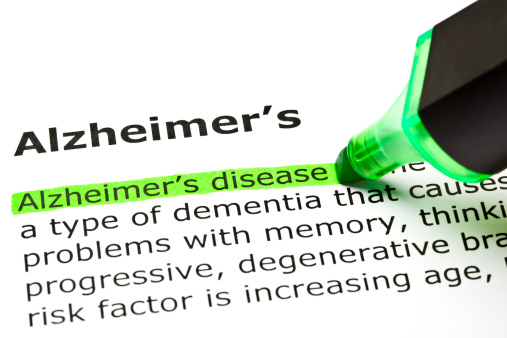

Dementia and Alzheimer’s Disease – What Can Be Done?
Over the years research has been conducted on ways in which to reduce the chance of suffering from dementia, including Alzheimer’s disease. Five important tips to guard against Alzheimer’s disease are discussed below.
1.Have a Purpose
A study from Rush University Center in Chicago found that individuals who had a greater purpose in life maintained their brain function better than individuals who did not have a purpose. Brain plaques and tangles are commonly found in older individuals. People who maintained a purpose in life were more likely to avoid dementia even when these plaques and tangles were found in their brains.
2.Get Active
According to the Alzheimer’s Research and Prevention Foundation, regular physical activity decreases your risk of developing Alzheimer’s disease by 50%. Research has found that regular exercise, such as jogging, helps to retain the volume in the front of the hippocampus which helps to retain memory. Furthermore, exercising decreases the risk of cardiovascular disease and it may have a positive effect on the brain by increasing blood flow and oxygen saturation.
3.Train Your Brain
Research from the University of California found that people that read or played games that stimulated their brain over their life time had lower levels of beta amyloid. Beta amyloid is a protein that has been linked to Alzheimer’s disease.
4.Eat Healthy
Following a diet that includes lots of fresh fruits and vegetables, whole grains and that is low in saturated fats and added sugars may help to reduce your risk of dementia.
5.Manage Stress
Chronic exposure to high levels of stress can trigger the production of insoluble tau protein aggregates. Tau aggregates are similar to the tangles that are found in the brains of individuals with Alzheimer’s disease. Reducing stress levels will potentially lead to a reduction in the development of tau. Natural treatment options for stress reduction include meditation, deep breathing, yoga, and massage therapy among others.
Treatment Options
If you are diagnosed with Alzheimer’s disease or dementia, early treatment is vital, as this can help to preserve some brain function. Treatment for dementia and Alzheimer’s disease is multi-faceted and complex. The complex nature of dementia treatment helps to maintain mental function, maintain behavioral function and may slow or delay some of the symptoms associated with dementia. Once a diagnosis of Alzheimer’s disease is made, it is imperative that you speak with your health care professional to determine the best treatment option for your case. It is important to remember that the treatment of Alzheimer’s disease cannot stop the progression of the disease but early treatment can help slow the progression of the disease. Additionally, treatment of Alzheimer’s disease should help to improve the quality of life of an individual suffering from this devastating disease.